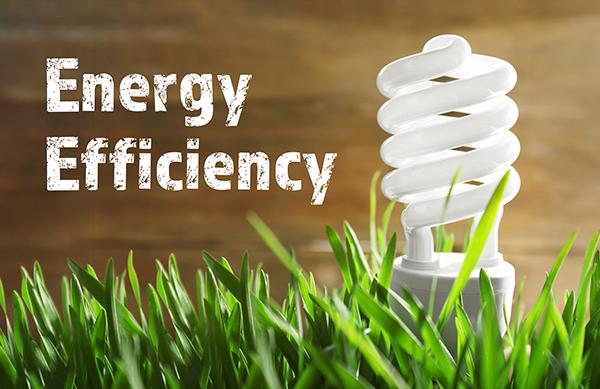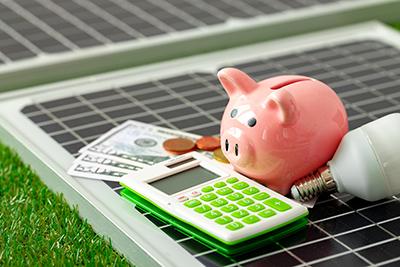As homeowners, we all want to maintain a beautiful and comfortable living environment that we can be proud of.
However, keeping a home in good condition requires effort, dedication, and knowledge.
From routine cleaning and maintenance tasks to occasional repairs, there are several steps that you can take to preserve your home’s structural integrity, functionality, and aesthetic appeal.
Whether you are a new homeowner or have lived on your property for years, it’s crucial to prioritize home upkeep and invest in preventive measures that can save you time, money, and stress in the long run.
In this blog post, we will explore some practical tips and best practices for maintaining your home’s condition and ensuring that it remains a safe and welcoming place for you and your family.
From inspecting your roof and gutters to decluttering your living spaces and protecting your appliances, we will cover a range of topics that can help you keep your home in top shape.
So, if you’re ready to take charge of your home’s maintenance needs
1. Regular cleaning and maintenance practices
Home maintenance is vital to ensuring your property is always in good condition.
Regular cleaning and maintenance practices are cost-effective ways to keep your home looking its best and avoid expensive repairs in the future.
One of the most important aspects of home maintenance is preventive maintenance, which involves identifying potential issues before they become major problems.
To keep your home in good condition, it’s important to conduct regular inspections, such as checking the roof for leaks, inspecting electrical systems, and monitoring plumbing systems.
General upkeep, such as keeping the home clean and organized, also plays a significant role in maintaining the overall condition of your property.
By incorporating these practices into your home maintenance routine, you can avoid costly home repairs and improve the value of your property.
2. Promptly fix any damages.
Promptly fixing any damages is an essential aspect of home maintenance and repairs.
Neglecting small issues can lead to more significant problems, which can be costly to fix.
Whether it’s a leaky faucet, a squeaky door, or a cracked tile, addressing these issues as soon as they occur is crucial for keeping your home in good condition. Regular preventive maintenance and general upkeep can help you identify problems early on and prevent them from getting worse.
Remember that home improvement is not just about making your space look good but also about keeping it functional and safe for you and your family.
Set aside time and resources for home repairs and maintenance to avoid more significant expenses in the long run.
3. Properly store and use items.
One of the most important aspects of home maintenance is the proper storage and use of items.
This is crucial for both home repairs and home improvement projects. Preventive maintenance is key to general upkeep and ensuring the longevity of your home.
Properly storing items such as tools, chemicals, and paints can prevent accidents and damage to your home.
Use shelving and storage containers to keep items organized and out of reach of children and pets.
Additionally, follow instructions for use when using any chemicals or potentially dangerous tools to prevent harm to yourself or others.
By practicing proper storage and use of items, you can maintain a safe and well-functioning home for years to come.
4. Regularly inspect your home.
One of the keys to proper home maintenance is to regularly inspect your home.
This will help you identify any potential issues or repairs that may be needed before they become bigger and more costly.
By incorporating this practice into your home improvement routine, you will be able to stay on top of preventive maintenance and general upkeep.
Regular inspections can help you identify leaks, cracks, mold, and other issues that may affect the structural integrity of your home.
It can also help you identify areas that need cleaning or new paint, which can help keep your home looking great for years to come.
Overall, regularly inspecting your home is an essential aspect of home maintenance that should not be overlooked.
5. Keep up with home improvements.
The importance of home maintenance cannot be overstated.
To keep your home in good condition, it is crucial to keep up with home improvements.
Home improvement projects can range from minor repairs to major renovations. Preventive maintenance is key to avoiding costly repairs down the road.
General upkeep, such as cleaning gutters, changing air filters, and checking for leaks, can help prevent major issues from arising.
It is important to address any issues as soon as they arise to prevent further damage and more expensive repairs.
Regular home repairs and home improvement projects can also increase the value of your home.
By keeping up with home improvements, you can ensure that your home remains a safe, comfortable, and welcoming place for you and your family for years to come.
In conclusion, keeping your home in good condition is essential for maintaining its value, safety, and comfort.
By following the tips outlined in this post, you can ensure that your home remains in excellent condition for years to come.
Whether it’s regularly inspecting and maintaining your HVAC system, cleaning gutters and drains, or addressing any repairs promptly, taking a proactive approach to home maintenance is key.
By investing time, effort, and money into your home’s upkeep, you can avoid costly repairs, improve its energy efficiency, and enjoy a safer and more comfortable living environment.
Keep Your Home in Good Condition FAQ
1. Why is home maintenance important?
Home maintenance is important because it helps you keep your home in good condition. Regular maintenance tasks such as cleaning, repairing, and inspecting various parts of your home ensure that everything is working properly and can help prevent any potential damages or problems. It also helps to maintain the value of your property and creates a safe and comfortable living environment for you and your family.
2. What are some basic home maintenance tasks that need to be done regularly?
There are several basic home maintenance tasks that should be done regularly to keep your home in good condition. These can include cleaning your gutters, checking and changing your HVAC filters, inspecting for any water leaks or damages, testing your smoke detectors, cleaning your windows, maintaining your yard or landscape, and checking the security of your home.
3. How often should I perform home maintenance tasks?
The frequency of home maintenance tasks can vary depending on the task itself. Some tasks, like cleaning gutters or changing HVAC filters, may need to be done every few months, while others, like checking smoke detectors or inspecting for water leaks, can be done annually. It’s a good idea to create a home maintenance checklist and schedule regular inspections and tasks based on the specific needs of your home and its exterior and interior components.
4. How can I make home maintenance more efficient and budget-friendly?
There are several ways to make home maintenance more efficient and budget-friendly. One way is to combine tasks and create a schedule or checklist. This allows you to streamline the process and save time and effort. Another way is to do-it-yourself for tasks that you feel comfortable tackling, as this can save you money on hiring professionals.
Additionally, preventive maintenance is key, as it helps you catch and rectify small issues before they become bigger and more expensive problems. Regularly checking and servicing equipment, cleaning and maintaining facilities, and implementing safety protocols can help minimize the risk of accidents or breakdowns.
This proactive approach can save time, money, and resources in the long run. It also contributes to the overall efficiency and effectiveness of the operations.
By addressing small issues early on, you can prevent them from escalating into larger problems that could disrupt production, impact customer satisfaction, or even lead to costly repairs or replacements.
Preventive maintenance also prolongs the lifespan of equipment and facilities, helping you get the most out of your investments.
Overall, integrating preventive maintenance into your business practices is essential for maintaining a smooth and successful operation.
True-or-False Quiz on “How to Keep Your Home in Good Condition”
1- True or False: Annual home maintenance is not necessary if your home is new and in good condition.
Answer: False
Explanation: Even new homes require regular maintenance to ensure they stay in good condition over time. A well-maintained home can prevent costly repairs down the line.
2- True or False: DIY (Do It Yourself) is always the best approach for home maintenance.
Answer: False
Explanation: While DIY can save you money, some tasks may require professional expertise. Safety and effectiveness should always be considered.
3- True or False: Sustainable and eco-friendly practices can be integrated into home maintenance.
Answer: True
Explanation: Sustainable practices, such as using eco-friendly cleaning products or efficient appliances, can reduce your environmental impact and lower utility bills.
4- True or False: Your home’s exterior doesn’t require as much attention as the interior.
Answer: False
Explanation: Maintaining the exterior of your home is essential to protect it from weather damage, improve curb appeal, and ensure longevity.
5- True or False: A home inspection is only necessary when buying a home.
Answer: False
Explanation: Regular home inspections can identify issues early and help you prioritize maintenance tasks, whether you’re buying a home or not.
6- True or False: Keeping the air quality in your home is not essential for your well-being.
Answer: False
Explanation: Good air quality is crucial for your health. Regular cleaning and proper maintenance can help improve indoor air quality.
7- True or False: It’s convenient to tackle small household chores as they come up, rather than letting them pile up.
Answer: True
Explanation: Addressing small tasks promptly can prevent them from becoming more significant and time-consuming problems.
8- True or False: Homeowners should check the flow of water away from the house seasonally.
Answer: True
Explanation: Seasonal checks of water flow away from the house can prevent water damage to the foundation and basement.
9- True or False: The home’s design and lifestyle can impact the ease of maintenance.
Answer: True
Explanation: The design of your home and your lifestyle choices can affect how easy or challenging it is to keep your home in good condition.
10- True or False: A home energy audit is a good way to identify ways to maintain your home efficiently.
Answer: True
Explanation: A home energy audit can help pinpoint areas where you can improve energy efficiency and reduce utility costs.
11- True or False: It’s also a good time to inspect and maintain the rest of the house when you’re doing your summer home care routine.
Answer: True
Explanation: Summer is an excellent time to conduct a comprehensive inspection and maintenance of your home, both inside and outside.
12- True or False: Regular house maintenance can make sure your home is safe for you and your family.
Answer: True
Explanation: Routine maintenance helps identify and address safety hazards, making your home a secure environment.
13- True or False: Certain parts of your home, like the roof, need to be replaced every 5 years.
Answer: False
Explanation: The lifespan of different parts of your home varies. Roofs, for example, typically last much longer than 5 years, but they still require periodic inspection and maintenance.
14- True or False: The flow of water should always move away from the house to prevent water damage.
Answer: True
Explanation: Proper drainage ensures that water flows away from your home’s foundation, preventing water damage and potential flooding.
15- True or False: It only takes a few minutes each day to keep your home tidy and in good condition.
Answer: True
Explanation: Daily maintenance tasks, such as cleaning up after yourself, can help keep your home in tip-top shape without much effort.
16- True or False: A well-maintained home can increase the resale value of your property.
Answer: True
Explanation: Regular maintenance and improvements can enhance your home’s value, making it a sound investment for the future.
Remember that maintaining your home is an ongoing process, and staying proactive can save you time and money in the long run.



